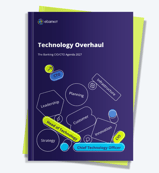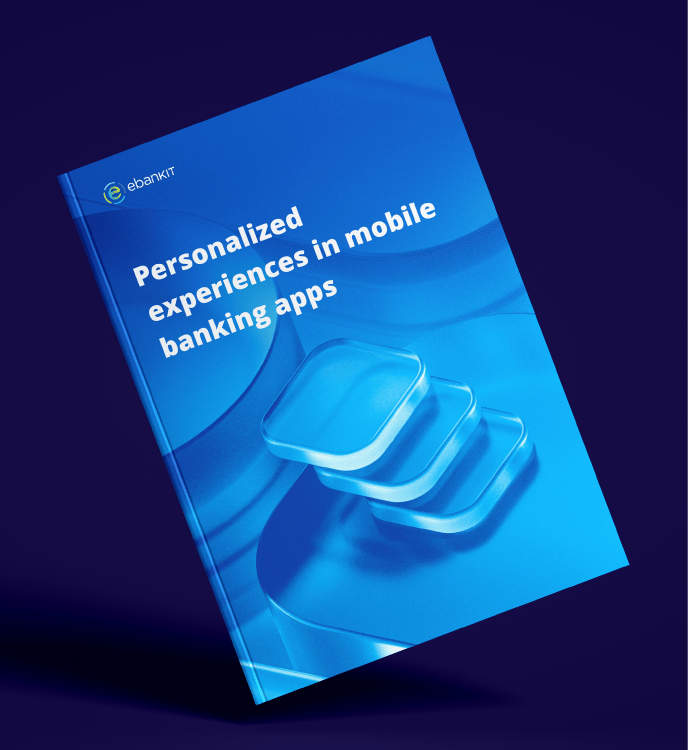Rethinking banking as a business of DREAMS
Recorded on June 11, 2025
![]()
SPEAKERS
SUMMARY
Lubomir Olach urges banks to reimagine their role as enablers of dreams through innovation, inclusion, sustainability, and technology. By embracing AI, supporting diverse communities, building ecosystems, and enhancing customer well-being, banks can inspire hope and drive meaningful impact in people’s lives, transforming banking into a force for good.
Key topics
Banks should help customers rediscover and pursue their dreams, especially in uncertain times.
Embracing AI, digital assistants, and omnichannel services to enhance customer experience.
Building partnerships and ecosystems that promote green finance, social impact, and long-term value.
Transcript
00:00:00 - Introduction
At the beginning of his presentation, Lubomir Olach sets an inspirational tone by referencing Martin Luther King Jr. and the idea of dreaming—not just in sleep, but as a metaphor for vision and innovation. He notes that many people, especially in today's stressful world, have stopped dreaming and that it's time to reignite that imagination.
He emphasizes that banking should go beyond technology and focus on how technology can help people fulfill their dreams. Given the challenges of the past 12 years—like COVID, inflation, and burnout—Olach argues that bankers have a unique role in restoring hope and vision in society.
To keep the presentation engaging, he promises to explore banking trends and innovation case studies by connecting them to popular hit songs, aiming to guide the audience on a journey of inspiration and practical ideas.
00:05:00 - Innovation in banking through the lens of pop culture
Lubomir Olach begins exploring innovation in banking through the lens of popular music—starting with Coldplay. He uses their massive popularity and sold-out shows as a metaphor for inspiring people to dream big, emphasizing that banks should play a key role in enabling and nurturing those dreams.
He illustrates this with various case studies. Olach references an Italian grocery store that caters to singles by offering small, customizable portions—drawing a parallel to how banks can tailor services to individual needs rather than assuming a one-size-fits-all model.
A second example would be Neobank by Intesa Sanpaolo (Italy). Aimed at less tech-savvy customers, this new initiative has already attracted 1 million customers, providing a simplified digital banking experience and competing with major players like Revolut.
Danske Bank (Denmark) was also given as an example. It focused on talent management, they use software to remove bias in job postings, helping to attract more diverse and qualified candidates.
The last one is Bloom Money (UK), a community-focused savings app that enables families or groups to collectively save for shared goals, promoting financial well-being.
He then transitions into a second musical theme: “Boulevard of Broken Dreams”. Here, he emphasizes the fragility of customer dreams and the importance of follow-through, ensuring that banks help customers achieve their goals instead of leaving them disappointed.
He then gives further examples: Francis Ford Coppola and The Godfather: He shares how Coppola had to fight to cast Al Pacino in The Godfather, using it as a metaphor for supporting the underdog.
Safra Bank (Brazil): They launched an accelerator program for minority entrepreneurs, offering mentorship and support to help bring marginalized dreams to life.
Happiness Bank (Belgium): Introduced a rent-to-own model, allowing customers to rent a property with the option to buy it later at a discount, making home ownership more accessible.
Through these stories, Olach highlights how banks can empower individuals and communities, help them dream again, and avoid becoming part of a “boulevard of broken dreams.”
00:10:00 - Ecosystems and Partnerships
Lubomir Olach continues exploring how banks and financial institutions can empower dreams, this time focusing on inclusivity, innovation, ecosystems, and partnerships.
He gives key examples about inclusivity and financial access. Happiness Bank (Belgium): Collaborates with real estate firms through financial leasing, focused on green construction to meet ESG goals. Morocco: Programs by Groupe Banque Populaire support local startups and fintechs across 11 African countries, encouraging innovation continent-wide. Charlie (USA): A financial service targeting seniors, allowing them to access Social Security payments 3–5 days earlier without fees, offering more financial flexibility.
Olach uses Queen’s song to underscore the message that banks should empower customers to pursue dreams fearlessly, providing the tools and confidence they need. He recounts the 1992 Danish football team's unlikely Euro win—a story of resilience and seizing unexpected opportunities—to illustrate how even “impossible” dreams can come true with support and preparation.
He then gives a non-financial example of a wedding ecosystem. David’s Bridal expanded from just wedding dresses to offering a full ecosystem of wedding services, showing how bundling complementary services can enhance customer experience—a model banks can emulate through ecosystem thinking. In banking ecosystems and partnerships, he mentions Societe Generale and Allianz, which are cited for their work in mobility ecosystems. There is also Ecobank (Africa), which supports microfinancing and women entrepreneurs through mentorship and business planning in 33+ countries, again stressing the importance of partnerships.
For Youth Financial Literacy, Riyad Bank (Saudi Arabia) launched a financial literacy program for children aged 6–18, using gamified tokens in a digital app to teach money skills, like a modern piggy bank.
He then introduced what may be the first AI investment assistant, offering low-cost investing with guidance for just $11/month. He ends with a social experiment, asking the audience if they’d trust a virtual avatar banker—most people say no, but Olach challenges them to imagine how attitudes might change in five years.
Olach’s message is that banking must evolve beyond transactions. Through ecosystems, inclusion, and partnerships, banks can ignite personal dreams, adapt to new tech like AI, and ultimately play a much larger role in people's lives and futures.
00:15:00 - Sustainability and AI-driven transformation
In this part of his presentation, Lubomir Olach shifts focus to how banks and customers can create positive impact, especially through sustainability, inclusion, and AI-driven transformation.
He starts with a reference to U2 and highlights how data compliance and ESG regulations are now mandatory in Europe, influencing how banks must operate responsibly.
Olach shares a moving story from the Tokyo Olympics about two high jumpers who chose to share the gold medal rather than compete further—symbolizing collaboration over competition, a lesson for banking and society alike.
Unstuck: A company that supports refugee and immigrant employment, showing how supply chains can be ethically empowered.
He then shares banking examples in Sustainability and social impact. There is CBK (likely in Kuwait), recognized for its mobile banking excellence and its initiatives in smart energy technologies, particularly through partnerships supporting sustainable home energy (e.g., solar power).
The Commonwealth Bank of Australia offers a Sustainability Action Tool for businesses to help meet climate goals. Provides certification programs, education hubs, and a “Benefits Finder” to help customers—especially new parents or women—discover what financial or social support they’re eligible for.
He also shares a Brazilian example which promotes donation-based banking, where customers get incentives or support when they contribute to socially meaningful causes.
He brings in the theme song from Top Gun: Maverick to emphasize how AI has become a “superpower”, once exclusive to elite institutions like NASA, now available to the masses.
He highlights how AI is already transforming healthcare, like helping a mother better understand and diagnose her child's health condition, and suggests banks must use AI similarly—to improve customers' lives.
This sets up the next section, where he begins presenting AI-driven innovations in banking, starting with an example from Italy.
00:20:00 - Generative AI
In the final part of his presentation, Lubomir Olach brings together the key themes of technology, personalization, and financial well-being, closing on an optimistic and forward-looking note. He introduces Alice, a digital assistant powered by Google Dialogflow, enabling seamless omnichannel communication—through mobile banking, internet banking, call centers, websites, and messaging platforms like Messenger and WhatsApp.
This reflects a major trend: virtual assistants integrated across all customer touchpoints, offering a unified, intelligent user experience.
New tools use generative AI to help with savings, spending, and financial decision-making—like setting saving goals, round-ups, or credit usage tips.
Example: An American solution by JPMorgan called "Quest Index GPT", which uses GPT-style AI to improve semantic investment search, helping users invest more wisely.
Olach reiterates that banks now have the power—and responsibility—to help customers realize their dreams through smart technology, emotional intelligence, and inclusive products.
He encourages bankers to reimagine what’s possible, challenging them to revisit old assumptions with fresh perspective and energy. He ends with a nostalgic and humorous video showing how AI and smart tech recreate the movie Home Alone, emphasizing how far digital assistance has come and how it can simplify, enhance, and personalize everyday life.


%20without%20SAM%20-%20Maturity%20Level%20-%202-KO%20edit.webp?width=160&height=57&name=67768-ebankIT%20Platform%20-%20CMMI%20Development%20V2.0%20(CMMI-DEV)%20without%20SAM%20-%20Maturity%20Level%20-%202-KO%20edit.webp)
